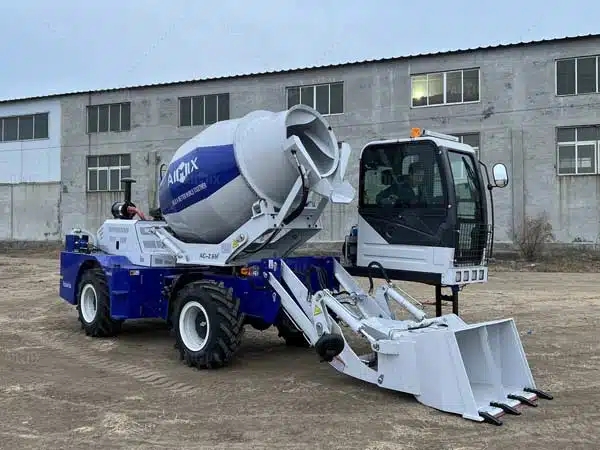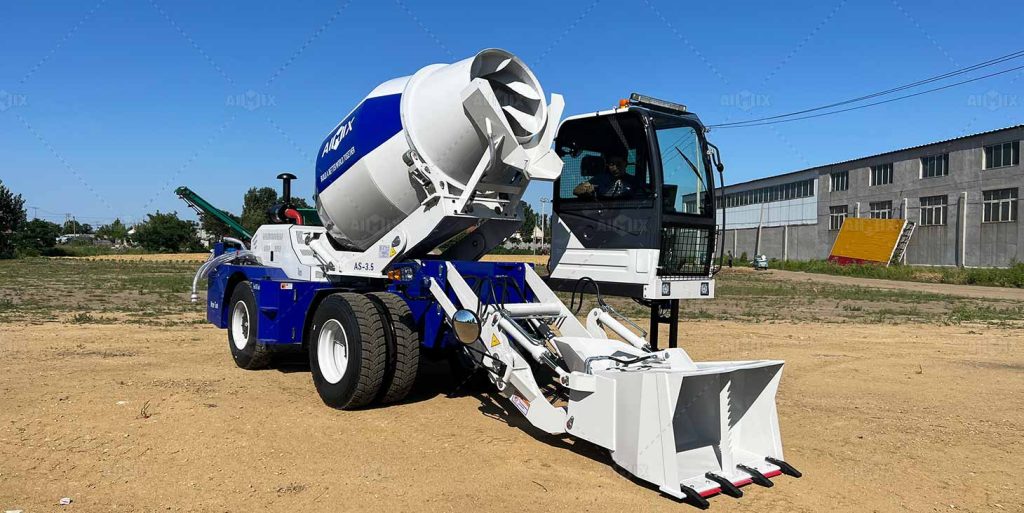Investing in a self-loading concrete mixer entails more than just the upfront cost. Understanding the additional expenses and considerations is crucial.
Operating Costs
1. Fuel Consumption
Fuel consumption is a significant operating cost for self-loading concrete mixers. These machines typically run on diesel, and their fuel efficiency varies depending on factors such as load capacity, engine efficiency, and operating conditions. High fuel consumption can significantly impact operational expenses over time.
2. Maintenance and Repairs
Maintenance and repair costs are inevitable for any heavy machinery, including concrete mixer truck self loading. Regular maintenance, such as lubrication, filter replacements, and inspections, is essential to ensure optimal performance and longevity. Additionally, unexpected breakdowns or component failures may require costly repairs, affecting overall operating expenses.

Training and Labor Costs
1. Operator Training
Proper training for operators is essential to maximize the efficiency and safety of self-loading concrete mixers. Investing in comprehensive training programs ensures that operators are proficient in operating the equipment, following safety protocols, and troubleshooting common issues. Training costs, including instructor fees and personnel time, should be factored into the overall investment. Learn more about training details here: https://concretemixerwithpump.com/self-loading-transit-mixer/.
2. Labor Expenses
Aside from operator training, labor expenses associated with operating self-loading concrete mixers include wages, benefits, and overhead costs for personnel involved in concrete production, transportation, and placement. Efficient workforce management and scheduling strategies can help minimize labor expenses and optimize productivity.

Regulatory Compliance and Insurance
1. Regulatory Compliance
Self-loading concrete mixer owners must adhere to various regulatory requirements governing mobile self loading concrete mixer operation, environmental protection, and workplace safety. Compliance may involve obtaining permits, licenses, or certifications, conducting regular inspections, and implementing safety measures to mitigate risks. Non-compliance can result in fines, penalties, and legal liabilities.
2. Insurance Costs
Insurance is essential to protect against potential risks and liabilities associated with self-loading concrete mixer operations. Depending on factors such as equipment value, usage, and location, insurance premiums may vary. Common types of insurance coverage for self-loading concrete mixers include liability insurance, property damage insurance, and workers’ compensation insurance.
In conclusion, the initial purchase self loading concrete mixer price is just one component of the overall investment. Operating costs, training and labor expenses, regulatory compliance, and insurance are among the additional considerations that buyers must account for. By carefully assessing these factors and incorporating them into their financial planning, businesses can make informed decisions and ensure the long-term success and profitability of their concrete mixing operations.